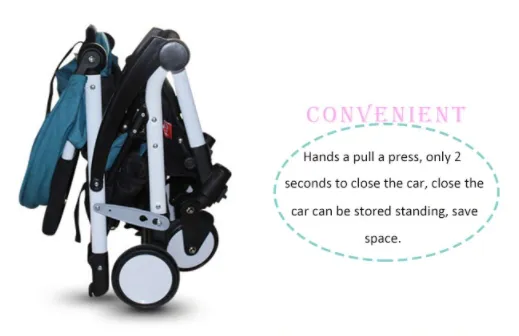
- Afrikaans
- Albanian
- Amharic
- Arabic
- Armenian
- Azerbaijani
- Basque
- Belarusian
- Bengali
- Bosnian
- Bulgarian
- Catalan
- Cebuano
- Corsican
- Croatian
- Czech
- Danish
- Dutch
- English
- Esperanto
- Estonian
- Finnish
- French
- Frisian
- Galician
- Georgian
- German
- Greek
- Gujarati
- Haitian Creole
- hausa
- hawaiian
- Hebrew
- Hindi
- Miao
- Hungarian
- Icelandic
- igbo
- Indonesian
- irish
- Italian
- Japanese
- Javanese
- Kannada
- kazakh
- Khmer
- Rwandese
- Korean
- Kurdish
- Kyrgyz
- Lao
- Latin
- Latvian
- Lithuanian
- Luxembourgish
- Macedonian
- Malgashi
- Malay
- Malayalam
- Maltese
- Maori
- Marathi
- Mongolian
- Myanmar
- Nepali
- Norwegian
- Norwegian
- Occitan
- Pashto
- Persian
- Polish
- Portuguese
- Punjabi
- Romanian
- Russian
- Samoan
- Scottish Gaelic
- Serbian
- Sesotho
- Shona
- Sindhi
- Sinhala
- Slovak
- Slovenian
- Somali
- Spanish
- Sundanese
- Swahili
- Swedish
- Tagalog
- Tajik
- Tamil
- Tatar
- Telugu
- Thai
- Turkish
- Turkmen
- Ukrainian
- Urdu
- Uighur
- Uzbek
- Vietnamese
- Welsh
- Bantu
- Yiddish
- Yoruba
- Zulu
Dec . 04, 2024 11:24 Back to list
Choosing the Right Battery for Your Electric Bike for Optimal Performance and Longevity
Understanding eBike Batteries A Deep Dive into Performance and Maintenance
Electric bicycles, or eBikes, have surged in popularity in recent years, offering an exciting blend of efficiency, sustainability, and convenience. At the heart of every eBike lies its battery, a component that significantly influences its performance, range, and overall user experience. This article explores the intricacies of eBike batteries, focusing on their types, performance metrics, maintenance tips, and future trends.
Types of eBike Batteries
The most commonly used battery types in eBikes are Lithium-ion (Li-ion) and Nickel-Metal Hydride (NiMH) batteries. Li-ion batteries dominate the market due to their lightweight, high capacity, and long cycle life. These batteries can be found in various configurations and capacities, typically ranging from 250Wh to over 1000Wh.
NiMH batteries are less common but are still used in some models. They are heavier and have a shorter lifespan compared to Li-ion batteries, but they are considered safer and more environmentally friendly. Other emerging technologies, such as solid-state batteries and lithium iron phosphate (LiFePO4), show promise due to their enhanced safety profiles and longevity.
Performance Metrics
Battery performance is primarily governed by several factors capacity, voltage, discharge rate, and cycle life
.1. Capacity (Wh) This indicates how much energy the battery can store. A higher capacity typically means a longer range per charge. However, it is important to balance capacity with weight and size, as larger batteries may affect the bike’s handling.
2. Voltage (V) Voltage is crucial for determining the motor's output. Most eBikes operate between 24V and 48V, with higher voltages often found in performance models. Higher voltage can translate into better acceleration and climbing power.
3. Discharge Rate This measures how quickly a battery can release energy. A higher discharge rate enables better performance during steep climbs or high acceleration, making it important for sporty riding styles.
4. Cycle Life This is the number of complete charge/discharge cycles a battery can undergo before its capacity drops to around 70% of its original value. Li-ion batteries usually boast a cycle life of about 500-1500 cycles, depending on the quality and care.
batterie ebike

Maintenance Tips
Proper battery maintenance is instrumental in extending its lifespan and ensuring optimal performance. Here are some key tips
1. Regular Charging Lithium-ion batteries should not be fully discharged regularly. Aim to keep the battery between 20% and 80% charged for optimal longevity.
2. Storage Conditions When not in use, store the battery in a cool, dry place. Avoid extreme temperatures, as both heat and cold can diminish battery life.
3. Periodic Maintenance Clean the battery connections and housing to prevent corrosion. Regularly inspect for any signs of damage or wear.
4. Software Updates For eBikes that feature smart batteries, ensure the firmware is updated to take advantage of improvements in management systems.
Future Trends
As the eBike market rapidly evolves, so too does battery technology. Companies are investing in research and development for batteries that charge faster, last longer, and are built from sustainable materials. Solid-state batteries, for instance, promise increased safety and energy density while reducing weight.
Additionally, the push for a circular economy encourages manufacturers to adopt recycling practices for battery materials, further enhancing the environmental benefits of eBikes.
Conclusion
Understanding eBike batteries is crucial for anyone considering a purchase or already owning one. With various types, important performance metrics, and essential maintenance practices, riders can significantly enhance their biking experience. As battery technology continues to advance, eBikes are set to become even more efficient, making them an increasingly attractive transportation option for the environmentally conscious cyclist. Whether you're commuting to work or exploring scenic routes, a well-maintained eBike can provide an exhilarating ride that marries technology with sustainability.
-
The Ultimate Kids' Four-Wheeler Experience
NewsJul.09,2025
-
The Ultimate Guide to Mountain Bikes: Gear Up for Your Ride
NewsJul.09,2025
-
The New Age of Cycling: Electric Bikes for Every Rider
NewsJul.09,2025
-
The Best Kids Bicycles: Ride in Style and Safety
NewsJul.09,2025
-
The Best 3-Wheel Scooters for Kids: Fun, Safety, and Adventure
NewsJul.09,2025
-
Revolutionize Your Ride: Affordable Electric Bikes
NewsJul.09,2025
-
Finding the Perfect Mountain Bike for Every Rider
NewsJul.09,2025



